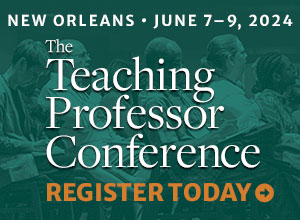Helping First-semester Students Learn from Mistakes
Teaching first-semester students has its own special challenges. The students all start out optimistic, but soon, many start making poor decisions such as skipping class, not doing the reading, not participating or even paying attention, and missing small and not-so-small assignments. […]


